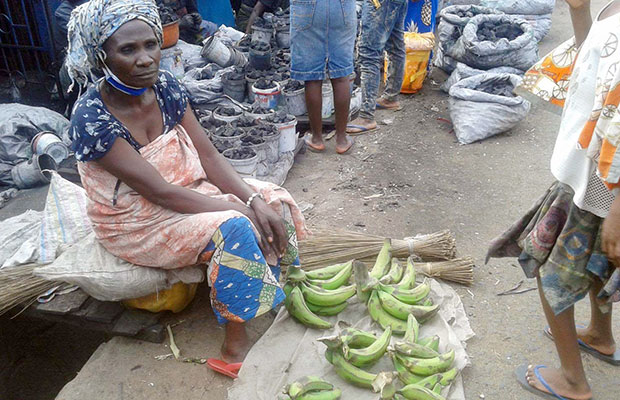
Helping Small Businesses Survive the Pandemic
The global impact of COVID-19 on small businesses has been devastating. Lockdowns, restrictions and drastically reduced volume have meant that countless proprietors around the world teeter on the brink of permanent closure. For women in Bukavu, in the Democratic Republic of the Congo (DRC), the repercussions are especially disastrous—which is why our Salesian missionaries have stepped in.
Even before COVID-19 struck, half of DRC’s population struggled to survive on just $1 per day. As a result, nearly 8.5 million men, women and children already desperately needed ongoing humanitarian assistance—including the 7.5 million who don’t have enough to eat. For more than 100 years, our dedicated missionaries have served the impoverished throughout the country, providing the holistic services children and families need to break the cycle of generational poverty. In recent years, missionaries have paid particular attention to empowering women and girls through education and training that have so often been denied to them.
“We know from experience that young women who are able to access opportunities like these have a much better chance at achieving financial independence, and making better and healthier choices that not only affect them, but their families and communities as well,” explains Father Gus Baek, director of Salesian Missions. “In the DRC specifically, nurturing the confidence and capacity of this traditionally marginalized population can truly turn things around for the better.”
In July 2018, missionaries and staff at the Don Bosco Center of Bukavu launched the Village Savings and Credit Association (or “AVEC,” after its French name)—an investment and micro-lending club for women, most of whom are young mothers. After contributing a modest amount to the collective fund for several consecutive weeks, members—now nearly 500 strong—become eligible to apply for grants to finance small business startups. Special assistance funds are also available to participants for the birth of a child, illness, a death in the family, or other emergency.
Françoise, Esperance and Anastasie, were among AVEC’s early participants. Françoise operates a small shoe repair shop; Anastasie launched a sewing cooperative; and Esperance and her husband sell fruit and sundries at a few local markets.
However, as the pandemic spread, their businesses suffered. Françoise increasingly lost customers due to the lockdown; Anastasie’s cooperative struggled to keep her three ancient sewing machines in operation when employees stopped showing up; and market closings cut off Esperance’s income. All three became unable to pay their AVEC dues, which threatened a vital source of emergency funds during a time they needed it most.
In response, two social workers at the Don Bosco Center intervened to offer desperately needed assistance—in the range of $50 – $150 each—to more than 120 women, including Françoise, Anastasie and Esperance.
“We might consider this a modest sum,” says Fr. Gus, “but for these women and mothers, it’s truly been a lifeline.”
Thankfully, as the pandemic cases diminished, the government decided to allow businesses to reopen.
With the $80 she received, Françoise succeeded in diversifying her business to include selling clothing items, and was able to buy food for her family. Anastasie used her $120 grant to purchase a new sewing machine for her cooperative, which has increased the capacity and quality of the clothes she can make and sell. And Esperance was able to take her $150 to restart her business after Bukavu’s pandemic restrictions lifted.
“By helping AVEC participants maintain their businesses, staff at the Don Bosco Center are helping prevent women from sliding backward into desperate poverty,” Fr. Gus concludes. “They truly exemplify what our vision for women empowerment is around the world.”
Our mission helps impoverished women access the education and resources they need to overcome adversity and build better lives and futures for their families. What’s your mission?
Learn more about our work in the Democratic Republic of the Congo.

